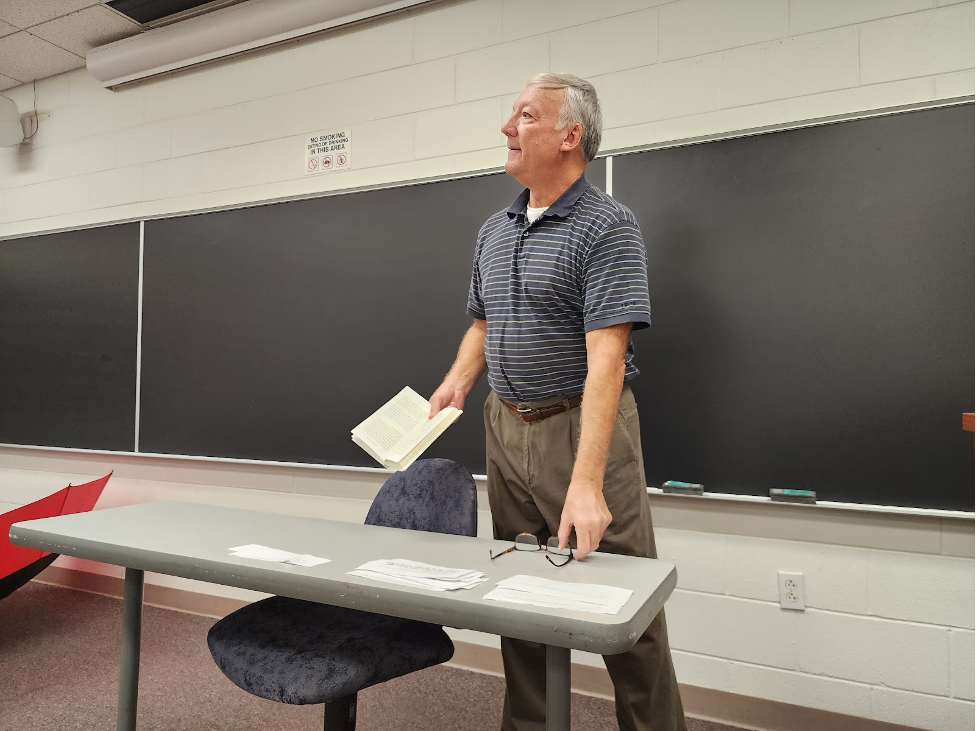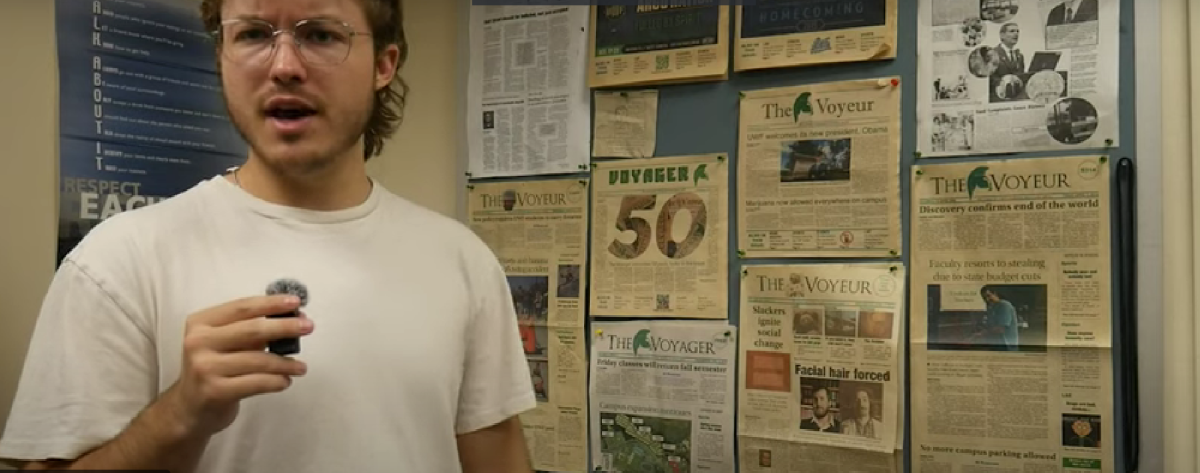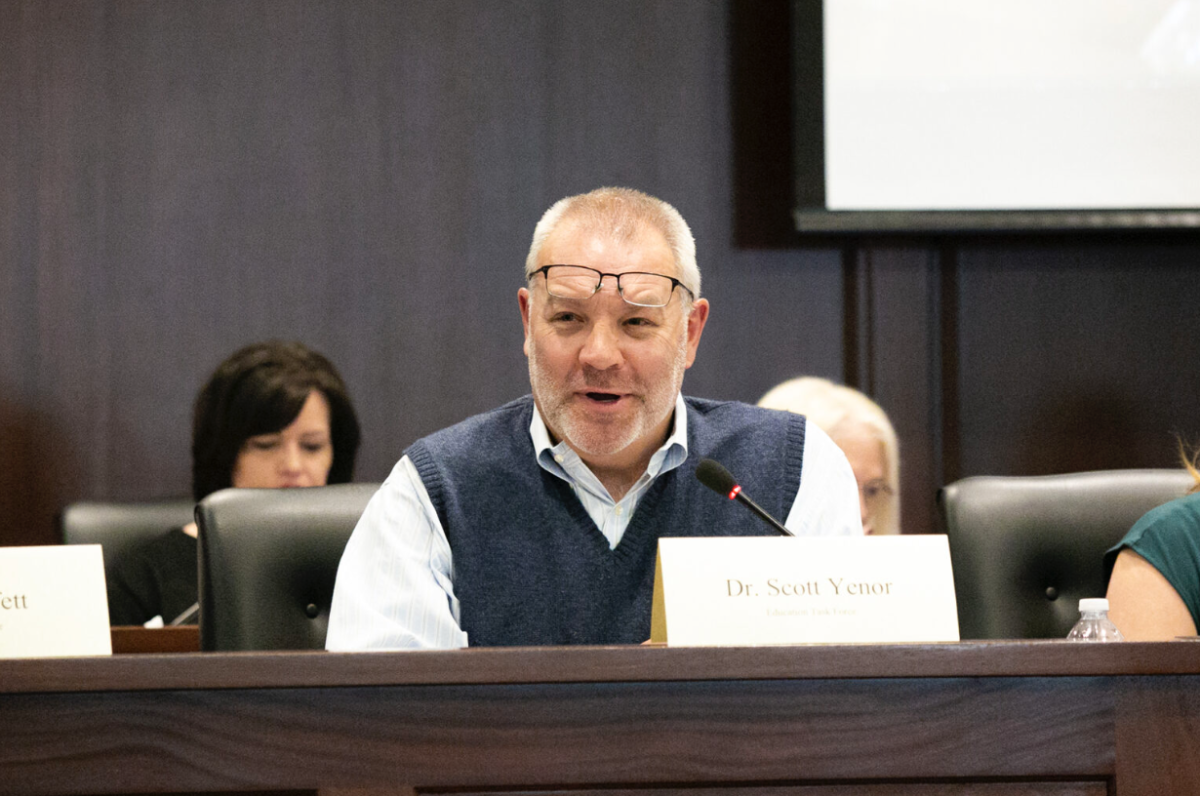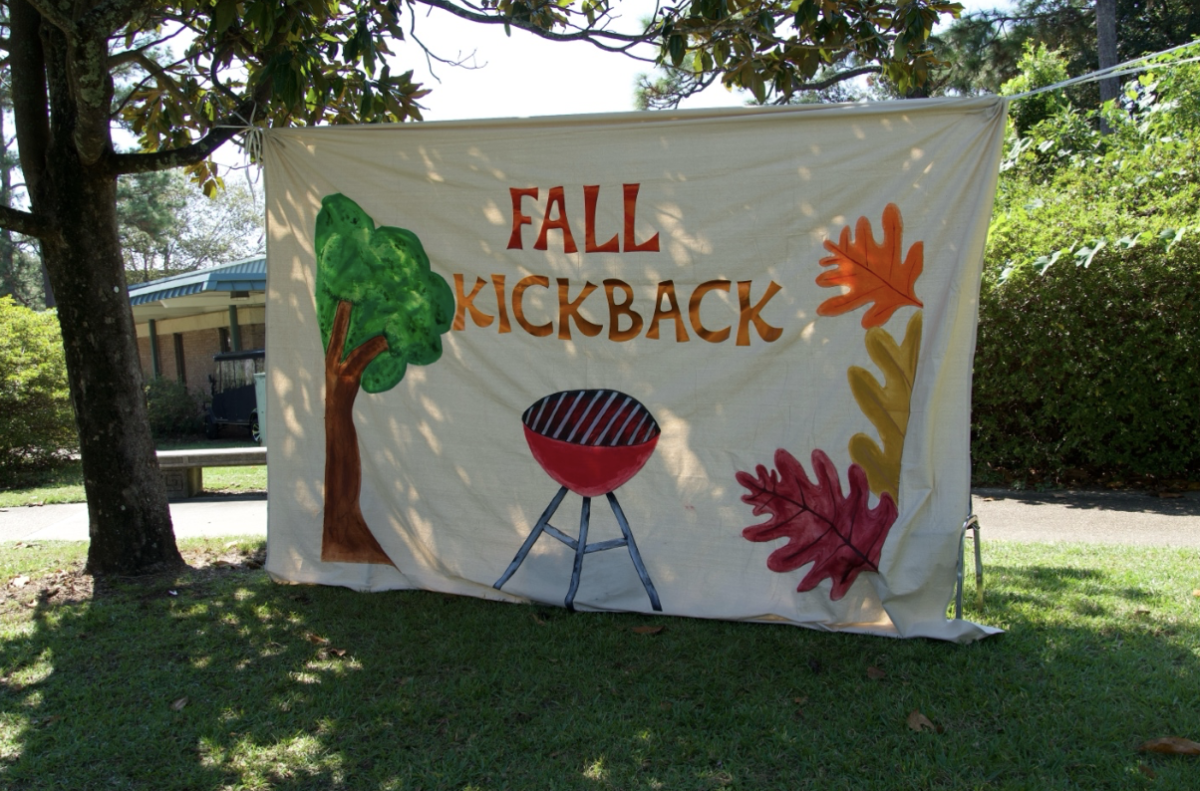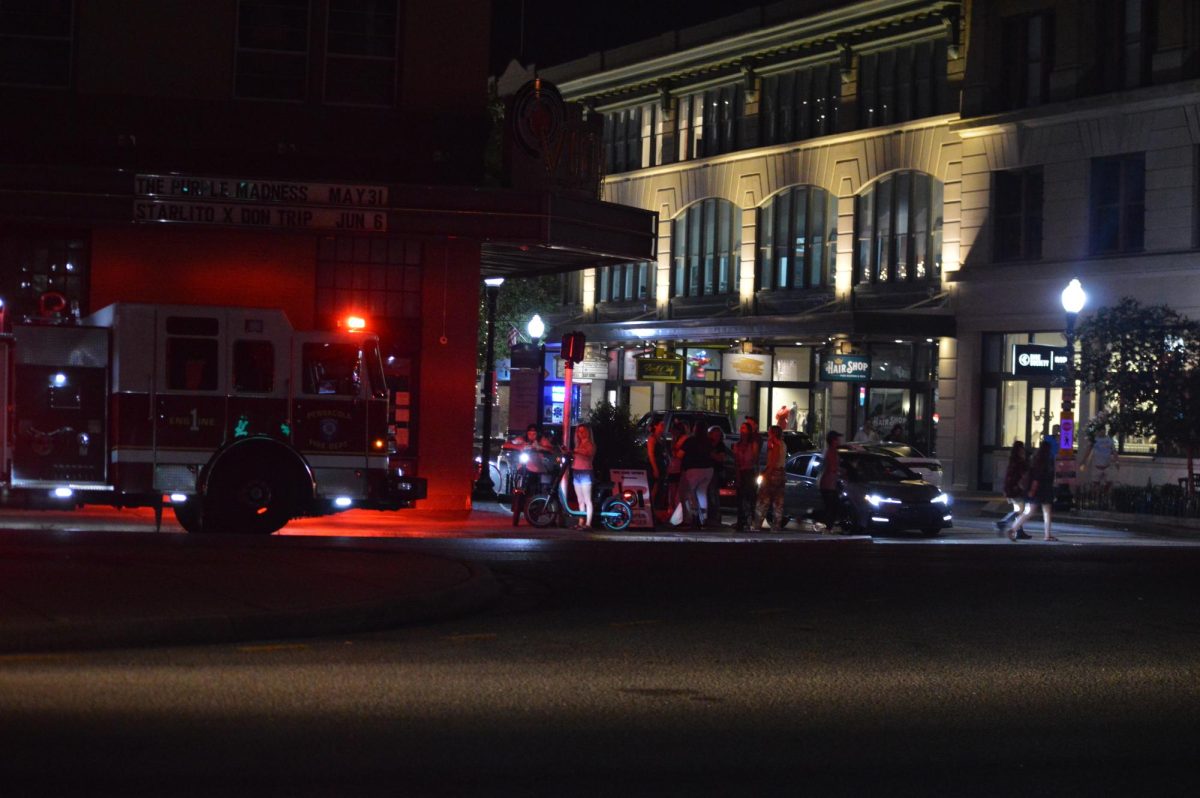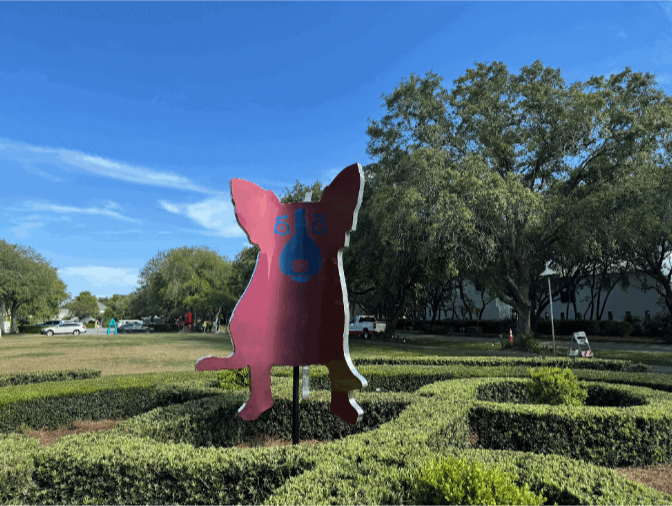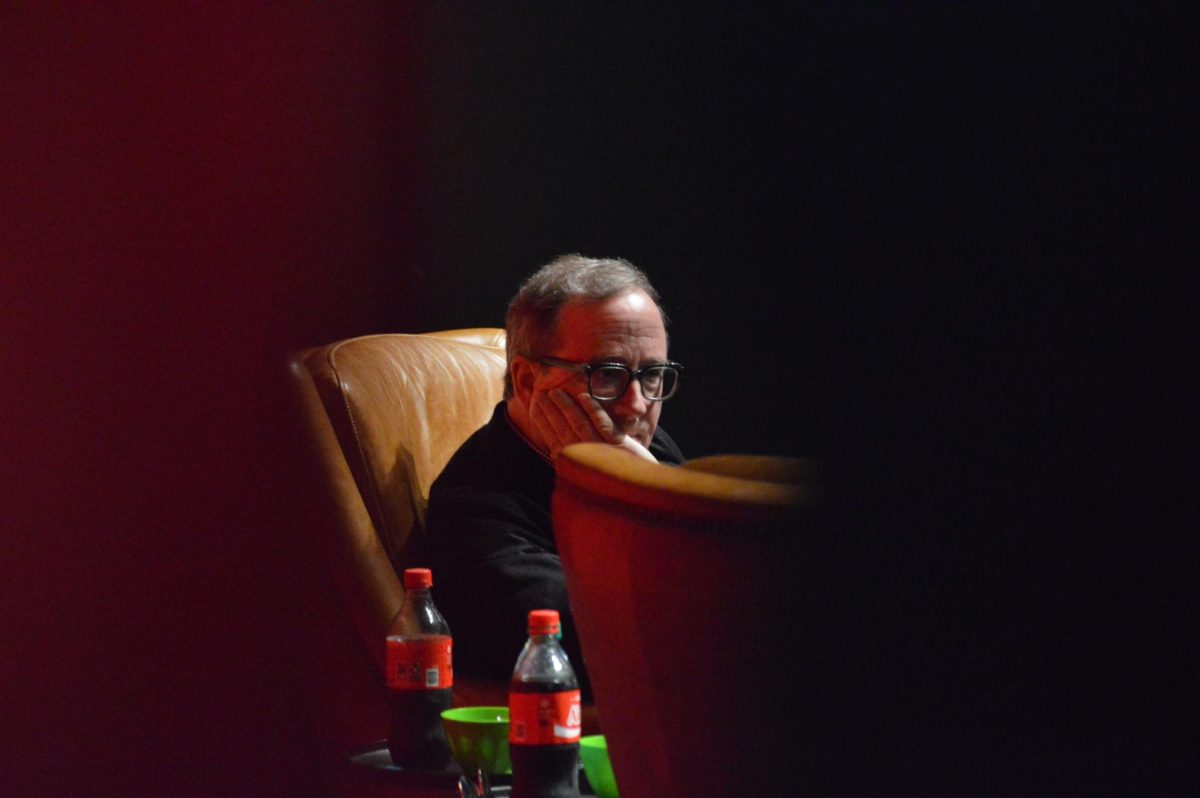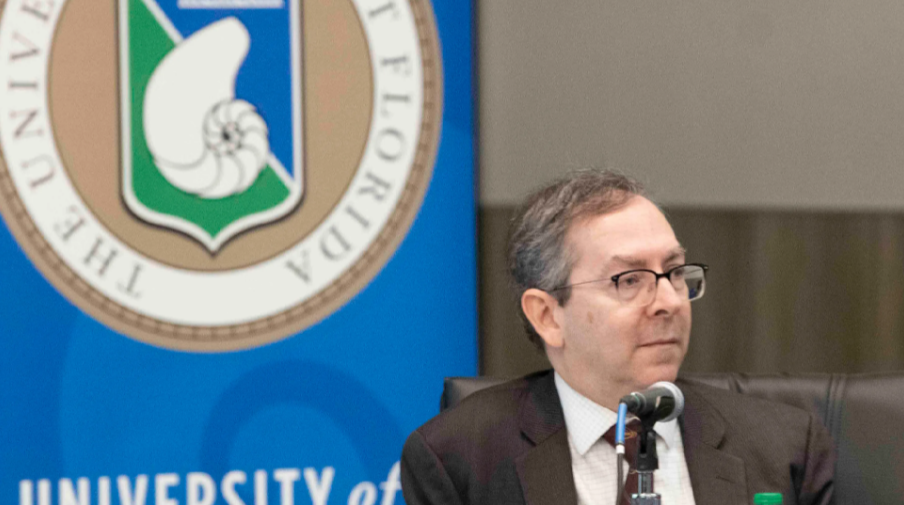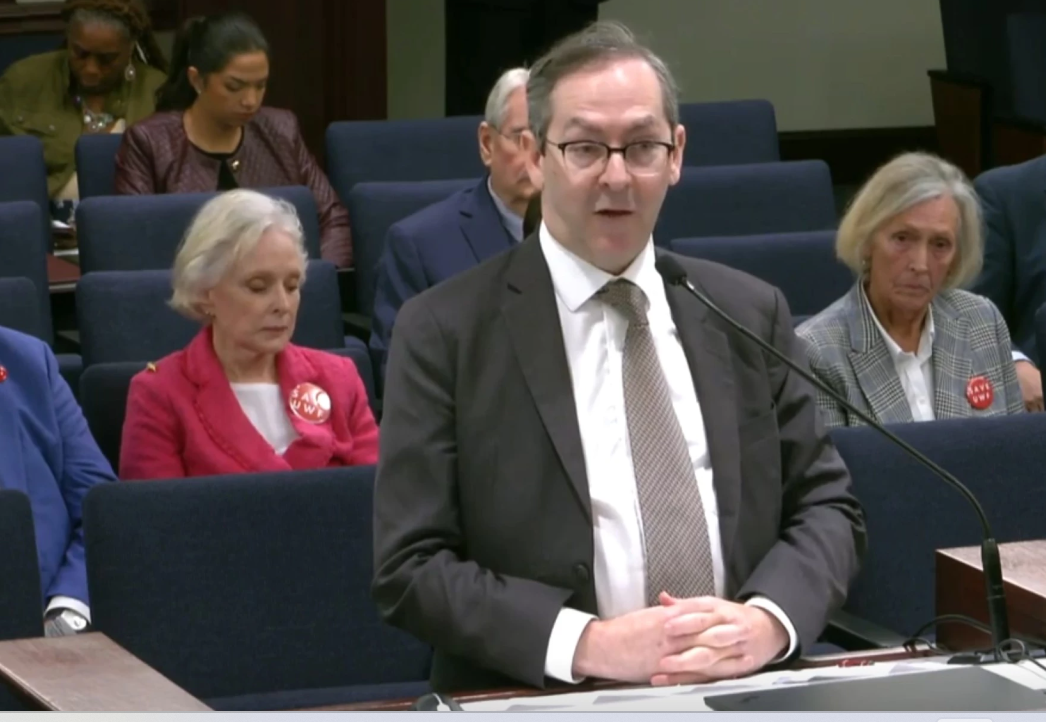Keeping with the incoming holiday season, Voyager student Mary Prokosch entered into the belly of the beast, Dr. Wise’s colorfully decorated office, to ask the most important questions Dr. Wise has ever been asked in his entire teaching career.
These questions are incredibly important, thought-provoking and hard-hitting.
However, it’s important to understand who this mysterious man is before we delve any further. Dr. Kurt Wise is part of our Communications department, and served as chairman for a few years. He specializes in teaching PR communications, educating collegians about how the act of death affects interpersonal communication and prevents grad students from pulling their hair out over their final projects.
Over the years, his students have regaled him as an eccentric wonder – someone who has many “Kurt-isms” – and have enjoyed the time spent in his classes. One of the most prominent “Kurt-isms” pertain to his ever-encroaching doom of a nursing home (his words, not mine), and his ideal end-of-life plans of staring off into space at birds.
“It never gets any better. My humor never gets any better!” Wise said.
Despite these eccentricities, Dr. Wise certainly follows his namesake, as he offers some sage advice and opinions on Halloween, its connection with death and why he teaches Death Communications at the University of West Florida.
The interview began with his legs crossed, leaned back in his armchair with hands folded politely but intently. The first hard question was laid out in front of him.
“What do you do to celebrate Halloween?”
He ponders for a moment, then answers: “I do very little to celebrate Halloween,” he said. “Is there candy available for little humans who come by? Yes, of course there is candy available for small humans.”
“Small humans” is another “Kurt-ism”.
However, things took a turn for the sinister when he unveiled his past Halloween exploits to me.
“Unlike when I was a young teenager, they actually end up getting the candy,” he divulged.
“As a young teenager, I would tie black string to things like Snickers bars for the little kids, toss them in[to their bags], and when they turned around, pull it back. I no longer do that!”
Absolutely shocked, it took all the courage to muster my next question.
“Do you decorate for Halloween?”
“No, I used to decorate, do the whole pumpkin thing, but I don’t anymore – I have calmed,” Wise said.
He doesn’t put any decorations up for Thanksgiving or Christmas either – to which I don’t blame him. He doesn’t have to take it all down at the end of the year!
The next question came easily. I was curious about what his favorite Halloween costume was.
“One year, I was a hula dancer,” Wise continues. “With the straw, doing the hula thing.”
That was curious, so I asked him the inspiration for this event.
“Yes I did show up in the coconut bra and everything,” he said. “I had a friend of mine who said ‘Nobody would have the courage to wear that’ and I just showed up at a Halloween bar tour.”
This took place when he was 22-years-old in Bloomington, Indiana. A very surprising place for a young Kurt to get his hula on, but it sure must’ve been a sight to behold. Luckily for him, but unlucky for us, he disclosed that there were no photos of this event. Next time you’re in his Death Communications class during a somber moment, just imagine him doing the hula while half drunk in rural Indiana. That’ll take you out of it.
Accordingly, his favorite thing about Halloween now is watching the “tiny humans” appear at his doorstep adorned with fanciful costumes – to which most of them he doesn’t know.
“It’s nice to see them show up, because they’re still in a state of believing,” Dr. Wise said. “I’d say watching the four-to-seven age range show up, because that’s nice, interesting and sweet.”
Trying to tie this interview back to his main course of study, my questions about death became the forefront of our conversation.
“What’s the relationship between Halloween and death in your opinion?”
“I think it’s extremely healthy, believing as I do, that death is a subject that should be discussed more and Halloween makes death – for a time – fun,” he said. “That’s something I see as positive; Mexico’s Day of the Dead – yes there’s some somber to it, but there’s a celebration, remembering loved ones. Anything that makes the concept of death more enjoyable and accessible I’m all for, and I like that aspect of Hallowen a lot.”
Sensing a deeper element, I then wondered what his personal perspective on death really was. As a student in his Death Communications class, I’ve surprisingly haven’t heard his own personal perspective really divulged in at all.
“My personal perspective is that death should never be feared,” he said. “It is something that comes to all of us, and as long as we are doing everything we can to remain healthy and live a long productive life, when that time comes, if you have thought about how you personally approach death and what comes afterwards – I think the process will be a lot easier.”
His class teaches “death positivity” – an aspect of American culture that’s not necessarily confronted or even wanted at all. Death positivity is what it says on the tin. It allows for a person to feel comfortable with their own mortality, and the mortality of those around them. It’s been shown that many students who exit his class have a higher chance of changing their perspective on death, than for those who haven’t.
Through themes of hospice care, pet loss, personal loss, life-altering experiences, diagnoses and other various afflictions, Death and Communication can teach students how to handle their own emotions when they lose something personal about themselves.
“It’s harder for people who never think about it and then are suddenly confronted with it for the possibility of themselves or their family members, then it’s overwhelming and shocking and can lead to poor mental health,” said Dr. Wise. “Approaching it early, as we are in this class – with the ages ranging between 18 and 26, means that some of the anxiety and fear will be lessened. And that’s what I think needs to happen for more people. We’re pretty death avoidant in this culture. Not as much as the Eastern cultures, but we have students from Taiwan in the class who are really death avoidant – they don’t discuss it at all. And I don’t think long-term that’s healthy. I just don’t.”
So then I began to wonder.
“Why teach something so morbid and sad for students. What inspired you to do this?”
“I teach Death and Communications because I’ve spent my time in my career teaching skill-based classes that lead to employment,” said Wise. “Public Relations, Journalism, Advertising, those kinds of classes that are all professionally based and all very academic. As I got near the end of my career, I’ve thought ‘I’ve spent the entirety of my career teaching students skills that are useful in the marketplace so they may be gainfully employed, but have I taught them anything which has any impact on their personal lives and what they may experience? No I haven’t. So what interests me and what can I add to that? I can add something about death.’ Which is a topic that’s always interested me. So, since this is nearing the end of my career, I thought to teach them something they can use in not just their career, but in their life.”
A little awe-struck, my mind started to wonder about other subjects he has taught. He told me that he was responsible for grad students and capstones. He divulged the joy he derives from seeing long-determined works reaching completion by student’s he’s grown to love.
“It’s fun to watch somebody finish up a grad project because it takes a lot of work,” he said. “And guiding those is a great deal of fun.”
Next semester, he’ll still be teaching Death Communications, but only for one section. The other slot will be filled with Communication Research, which he states could not be farther from a class about death. It’s a lot more academic and forthcoming, but he loves it all the same.
Dr. Wise took a long road here to UWF and saw many sights throughout his illustrious academic career. From Kentucky to Texas – to Virginia to Indiana – and now here, in Florida. Kurt has traveled far and wide to teach collegians about public relations, management, broadcast journalism and overall communications-centric academia. He even worked for a state lottery service.
“I started out in radio, did it in Kentucky and Indiana, then went into Public Relations in natural resources, public relations in magazine publishing, public relations for a state lottery for five years, public relations in the medical devices manufacturing field, then went off to the University of Maryland to get a PhD and taught mostly Public Relations in Dallas, Virginia Tech, DePaul University, Quinnipiac University, FIU, and now here,” he said. “Which is a short way of saying – I’m old.”
He worked as a college professor on the side, and as he went on through his career, began to realize that he much preferred the university life to his main nine to five. So, he became a professor full time and now is nestled into the calming campus of the UWF.
But why did he choose UWF? Out of all the campuses he’s been on, why choose us?
“This university has a very peaceful feel to it,” he divulged. “Think about universities like Florida State where the student population is between 50 and 60-thousand students. These are cities among themselves.”
At current, UWF has nearly 14-thousand students roaming the campus. Even though that may sound like a large number, compared to the other campuses Dr. Wise has taught at (FIU, Virginia Tech, etc.) around 56-thousand students and 30-thousand students respectively.
He feels that even though he loved the campuses he used to teach at, he much prefers the quiet life here at UWF. This aligns with his love of the Pensacola area in general, as it contains beautiful and peaceful beaches out in Perdido Key. Johnson Beach is his favorite place during the summer and visits every week.
“People take it for granted and don’t go; I enjoy beaches. They make me feel extremely peaceful.” Wise said.
Feeling as though I’ve gotten what I came for, our interview wrapped up with a very sage piece of advice from Dr. Wise himself about Death and Communications.
“If you’re wondering how you approach the concept of death – take the class.”
Death and Communications is a General Education course available to all students at UWF. He will have a section available for the spring semester. If death doesn’t interest you, take a look into his Communication Research class, where you can learn about research methods, data interpretation and much more.

